Boy among first to receive special brain device
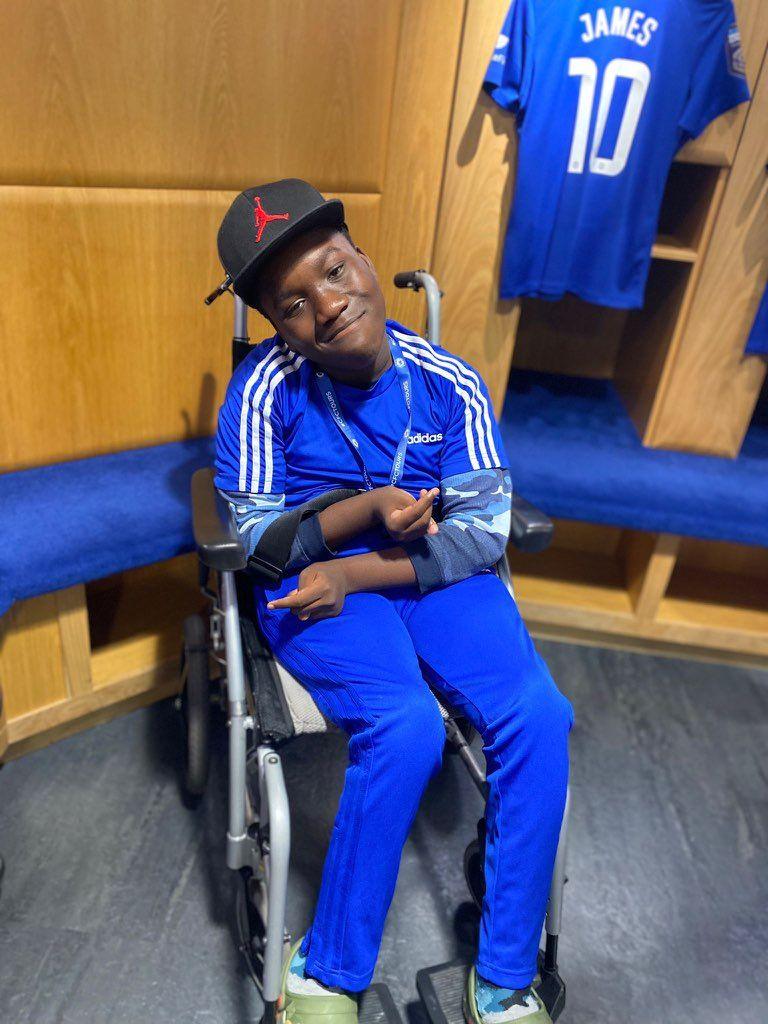
Sean Igbokwe, 14, is a big Chelsea fan
- Published
A teenage boy from London has become one of the first in the world to be treated with a new brain device.
Surgeons at the Evelina Children's Hospital hope it will help Sean Igbokwe deal with the uncontrolled movements caused by his cerebral palsy.
The device is rechargeable, which means 14-year-old Sean, from Mitcham in south-west London, will not have to go back for more surgery to have it replaced.
Using a technique known as deep brain stimulation, surgeons attached electrodes to Sean's brain to try to help control his movement.
Watch how Sean's brain surgery works
'Hugely exciting'
Not only is the new device rechargeable, it can also give doctors real-time data from deep inside Sean's brain, allowing them to tweak their treatment by sending different signals to the electrodes.
Dr Jean-Pierre Lin, a consultant paediatric neurologist at the Evelina, described the device as "hugely exciting".
"For the first time, we'll have access to real-time data from brains to guide us towards the best deep brain stimulation appropriate to each case. We can programme the device in a more targeted way to control muscle movement."
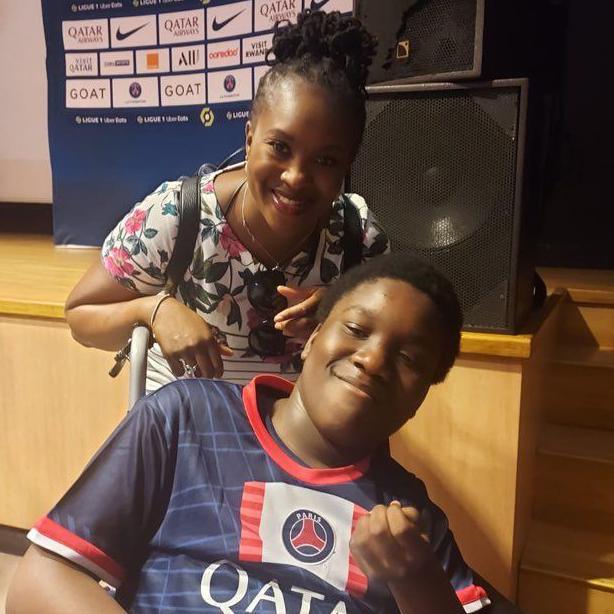
Sean with his mum Mandah
'It's very tough'
Sean's cerebral palsy means he needs a wheelchair to get about. It also means his arms can move in an uncontrolled way at times.
His mum Mandah described the daily routine. "At the moment it's tough. He's very stiff, to the point where his body's turning around in a way. The right arm is a bit lethal the moment... because it can just jump unexpectedly... it can give you a black eye," she chuckles.
"In the morning it's very, very hard to dress him. It takes two of us, his dad and I, to get him dressed."
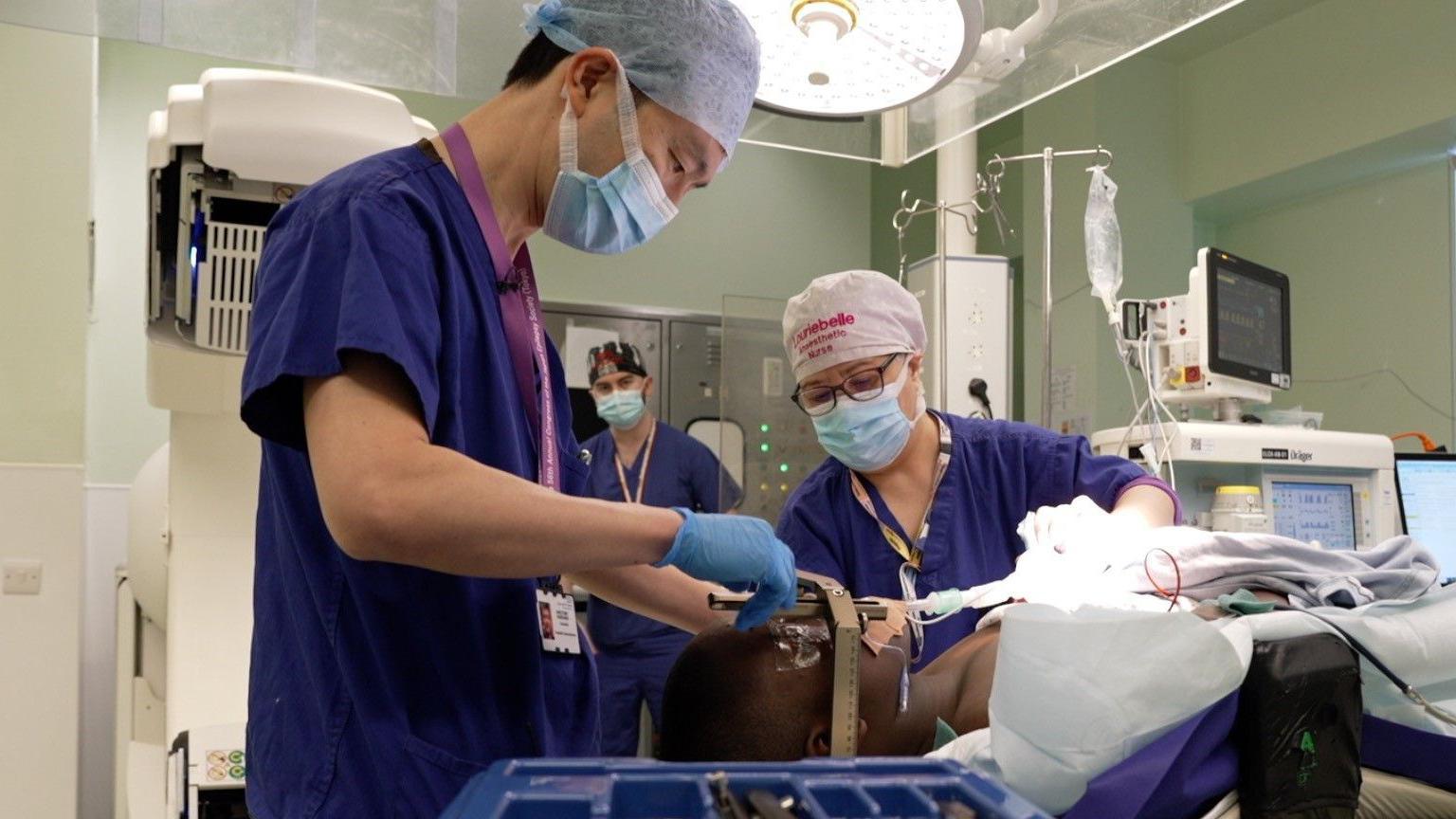
Setting up for surgery
Surgeons at the Evelina hope Sean's operation will help with those daily struggles - the electrodes they have put in his brain have gone to an area called the globus pallidus.
They describe it as being like a "gearbox" that helps control movement.
Deep brain stimulation itself is not a new technique. Forms of it are also used to treat conditions like Parkinson's and epilepsy, with different areas of the brain being targeted.
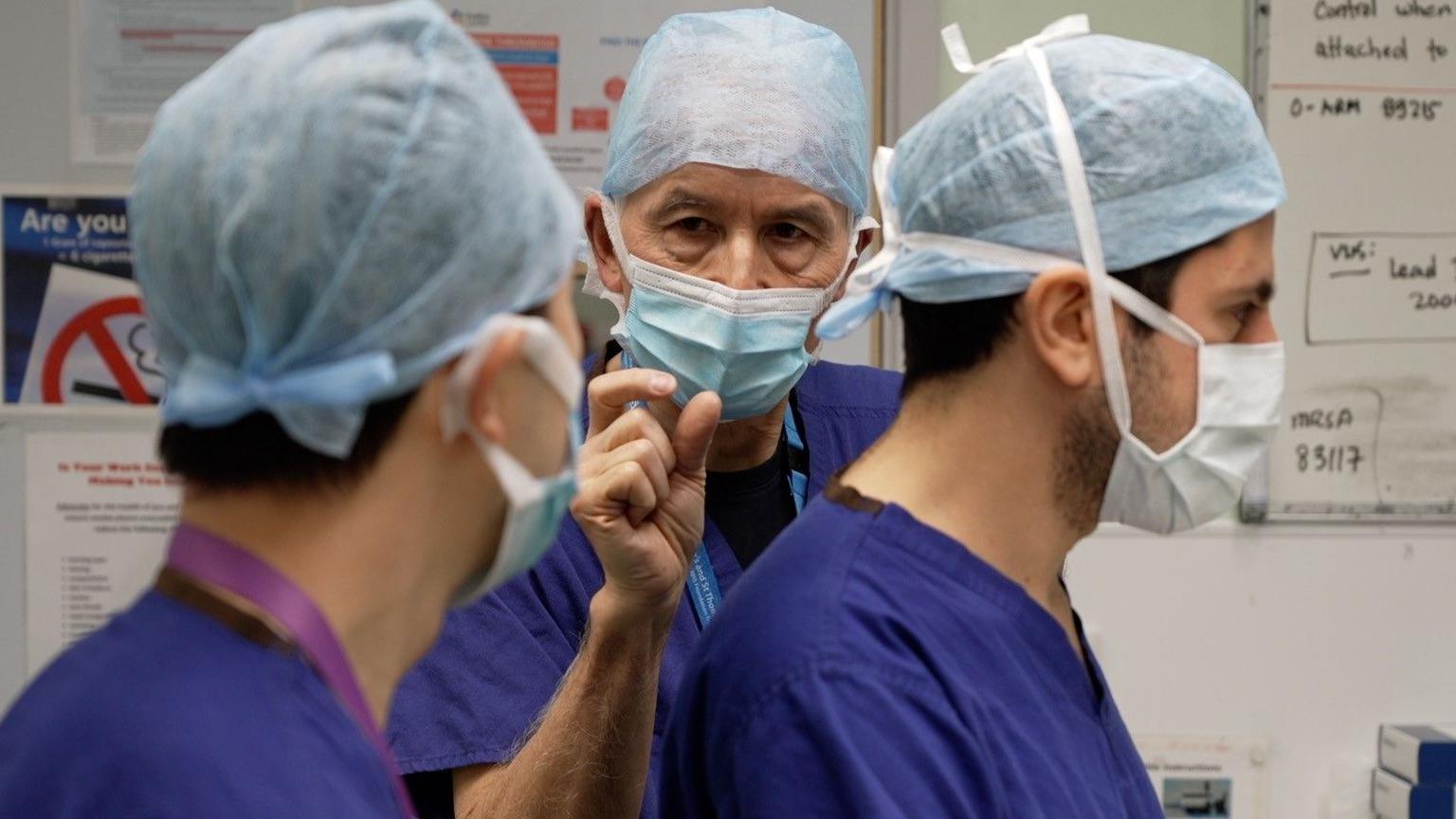
The operation can take about five hours
'Very big leap forward'
Doctors should get an idea within about a month if Sean's surgery has been a success.
They say having access to up-to-the minute data from his brain will be invaluable.
Dr Lin says: "By having this information, we think we'll be able to guide the stimulation process and possibly shorten the time it takes for deep brain stimulation to be beneficial, and also to determine if somehow it is malfunctioning in some way. So it's a very big leap forward."
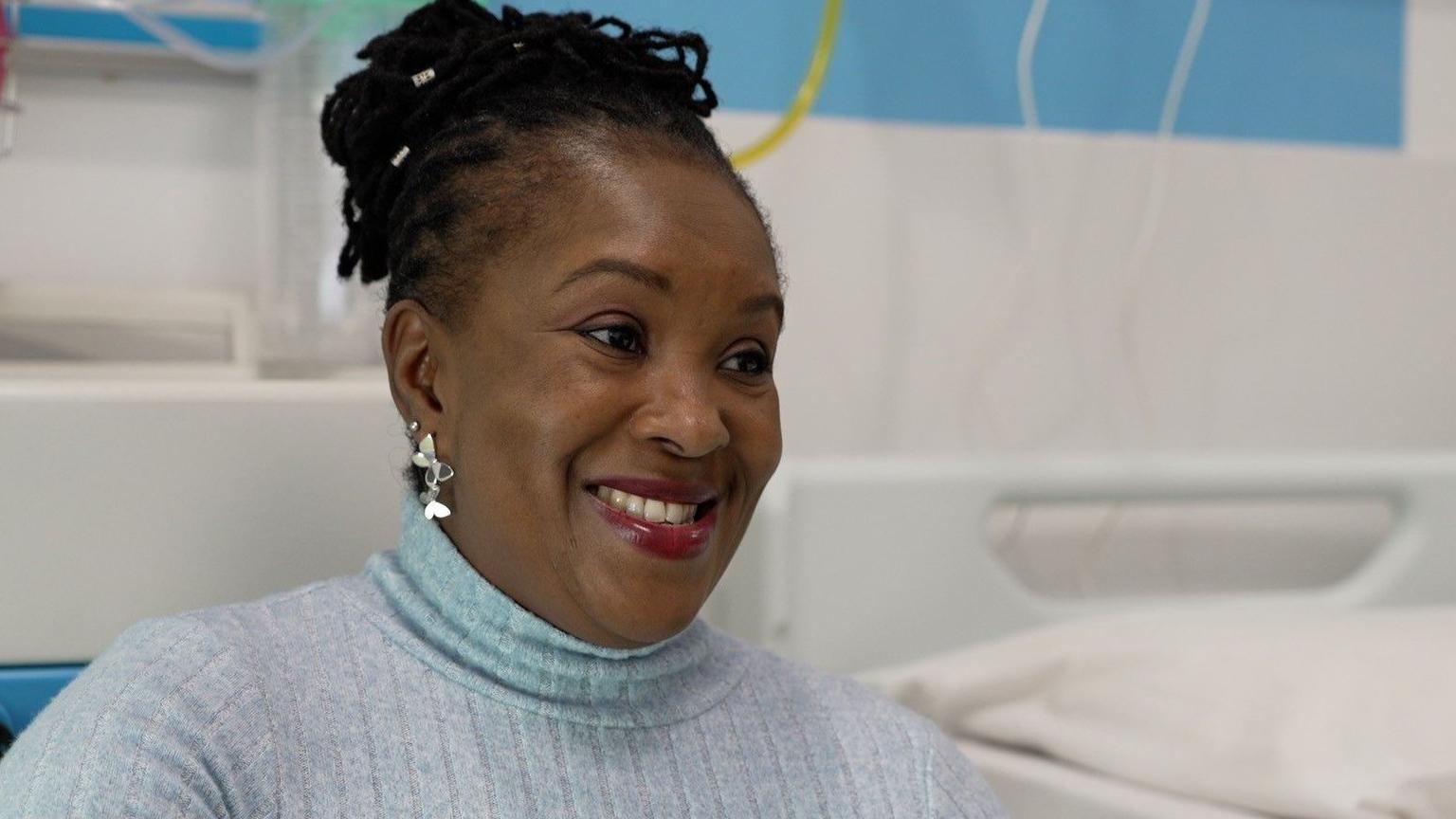
Mandah is hopeful the device will change their lives
Sean's mum, too, is hoping for a big leap forward. Small changes, she says, could make a huge difference to their lives.
"For him to be able to use his arms or his upper body mainly - if we have more than that, it would come as a bonus.
"But from where we are at the moment, that would be a great achievement for us."